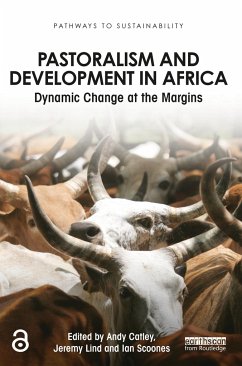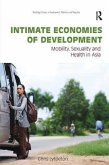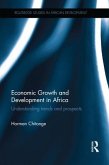Once again, the Horn of Africa has been in the headlines. And once again the news has been bad: drought, famine, conflict, hunger, suffering and death. The finger of blame has been pointed in numerous directions: to the changing climate, to environmental degradation, to overpopulation, to geopolitics and conflict, to aid agency failures, and more. But it is not all disaster and catastrophe. Many successful development efforts at 'the margins' often remain hidden, informal, sometimes illegal; and rarely in line with standard development prescriptions. If we shift our gaze from the capital cities to the regional centres and their hinterlands, then a very different perspective emerges. These are the places where pastoralists live. They have for centuries struggled with drought, conflict and famine. They are resourceful, entrepreneurial and innovative peoples. Yet they have been ignored and marginalised by the states that control their territory and the development agencies who are supposed to help them. This book argues that, while we should not ignore the profound difficulties of creating secure livelihoods in the Greater Horn of Africa, there is much to be learned from development successes, large and small. This book will be of great interest to students and scholars with an interest in development studies and human geography, with a particular emphasis on Africa. It will also appeal to development policy-makers and practitioners.
A view of 'development at the margins' in the pastoral areas of the Horn of Africa highlights innovation and entrepreneurialism, cooperation and networking and diverse approaches rarely in line with standard development prescriptions. Through twenty detailed empirical chapters, the book highlights diverse pathways of development, going beyond the standard 'aid' and 'disaster' narratives.
A view of 'development at the margins' in the pastoral areas of the Horn of Africa highlights innovation and entrepreneurialism, cooperation and networking and diverse approaches rarely in line with standard development prescriptions. Through twenty detailed empirical chapters, the book highlights diverse pathways of development, going beyond the standard 'aid' and 'disaster' narratives.








